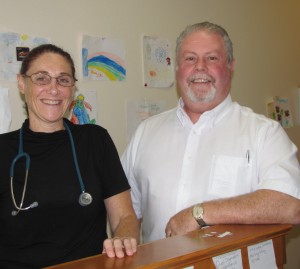
Finding financial angels has never been easy and a rocky economy has made the task that much harder. Many have taken wing as financial streams dry up.
Rob Lunski, who brought Gateway to Entrepreneurial Tomorrows (GET) to fruition in 2005 with the help of the Dyson Foundation and Marist College, is managing to continue the program.
GET”™s first office was in the Dutchess County Regional Chamber of Commerce”™s headquarters, but it soon had its own storefront on Poughkeepsie”™s Main Street, where it has continued to attract business hopefuls or those in business who need help expanding.
GET opened a second office in the city of Newburgh in 2008 and a third office in the village of Haverstraw in May. Asked by village officials to help its downtown business owners and business hopefuls to revitalize its Main Street, Mayor Michael Kohut and the Haverstraw Board of Trustees planted the seed money to open GET.
When its Haverstraw storefront came on line, GET had a physical location on New Main Street, “But we had already started in January going door-to-door, meeting local business owners, the chamber of commerce so they would know about program and what it could do for new or small businesses,” said Lunski.
To date, said Lunski, GET”™s Haverstraw office is working with 12 new and existing businesses. “The village set a goal for us, to have at least 15-20 businesses, and we have nearly reached that number within the first six months.”
A new microloan program, sponsored by Ulster Savings Bank, Riverside Bank, Orange County Trust, Empire State Bank, Greater Hudson Bank and Walden Savings Bank, gives GET”™s businesses the opportunity for financing.
In Haverstraw, “The West Café, which opened four months ago, was one of them,” said Lunski. Since the microloans have a maximum of $1,000, “it worked out for the owner. He just needed new signage, and the microloan will cover the cost.”
GET”™s agreement with the village of Haverstraw is in place for three years and will receive village financing of $50,000 a year through 2014. “It helps cover about 75 percent of our operating expenses,” said Lunski. “The rest will come from our operating funds.”
Jasmine Miranda, who worked in the Bronx borough president”™s economic development offices and was business service coordinator for the city of Newburgh until she was laid off in 2009, joined the GET team in 2010.
“I”™ve been with GET for nearly a year,” said Miranda. “Our biggest challenge is finding funding to help local entrepreneurs.” When she”™s not working on grant writing, Miranda is busy working with the businesses involved in the program.
“There”™s a lot of followup and hand-holding, even with established businesses,” said Lunski. “Some just need help filling out paperwork, because they are working longer hours and with less staff. Even after they leave the program and start their own business, we continue to follow up with them for the next two years.”
Lunski said Orange County”™s Industrial Development Agency originally helped open its Newburgh office in 2008, giving the program a $50,000 a year grant for three years. That arrangement expired in 2011, and the IDA has not renewed it. Although the Dyson Foundation has continued its support, Lunski said losing the IDA grant has made it more difficult to get others to make a financial commitment to the Newburgh program.
“As a result, our board of directors is considering closing the Newburgh office…we need to balance where we are. We need to have both the funding and the support in order to continue,” said Lunski.
Since GET first helped its first entrepreneur in 2005, it has worked on nearly 800 different projects. “Out of those 800, 370 were startups or already in business,” said Lunski. “Those 370 were still in business after two years. The SBA estimates 80 percent of business fail in the first year; we can measure the program”™s effectiveness and see we have a much higher success rate than the SBA predicts, since nearly 50 percent of the businesses we helped start are still in business.”
One of GET”™s new Haverstraw clients is its next-door neighbor, Dr. Sandra Fefer-Sadler, who went solo and opened her own pediatric office. “We have been helping her to market her new services,” said Lunski. “We”™re also working with Angela Rivera, an entrepreneur who started The Healthy Chef, teaching families how to cook healthy foods and save on groceries. She charges for the service and holds workshops and classes. Another is an Internet-based business selling high-end collectibles.
“I wish our political leaders would realize how vital small business is to the economy,” said Lunski. “We keep hearing how small business is the bedrock of America ”“ and will help bring back the economy ”“but there”™s really very little, if any, help out there. If you only work with businesses that are already ”˜in the middle,”™ those below will go out of business. We need to help get those on the bottom get the next level so they can keep going and help keep our economy going.”




















Great story Kathy. Thanks for covering an organization that is striving to help small businesses. We should all try to do as much as we can to support our community organizations.